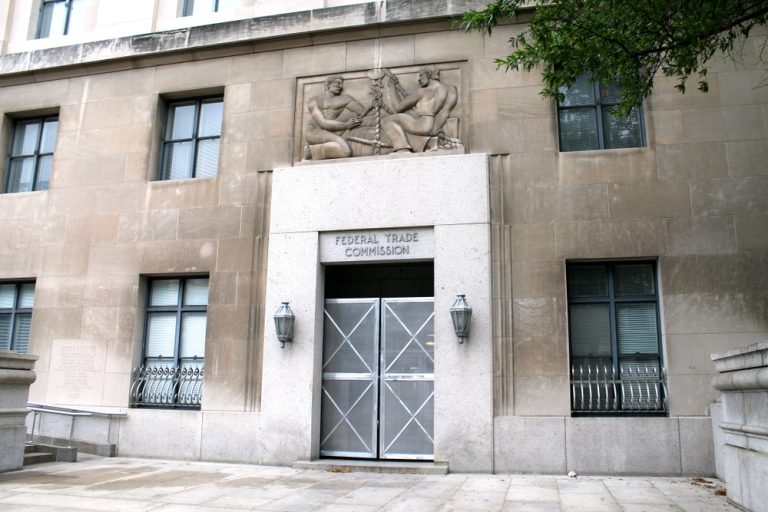The “Big Beautiful Bill” & Potential FLSA Pitfalls: What Employers Need to Know on “No Tax on Tips & Overtime” Provisions
The “Big Beautiful Bill” & Potential FLSA Pitfalls: What Employers Need to Know on “No Tax on Tips & Overtime” Provisions
On July 4, 2025, as part of the One Big Beautiful Bill Act (Act), provisions titled “No Tax on Tips” and “No Tax on Overtime” were signed into law. These provisions created new individual income tax deductions for qualified tips and overtime pay, allowing certain employees to deduct tips and overtime pay from their federal taxable income for the taxable years beginning January 1, 2025, and ending December 1, 2028.
No Tax On Tips
Subject to certain limitations, employees may deduct qualified tips, up to $25,000, received in occupations listed by the IRS that are customarily and regularly receiving tips on or before December 31, 2024, and that are reported on a Form W-2, Form 1099, or other specified statement furnished to the employee or reported directly by the employee on Form 4137.
What are qualified tips? The new tax deduction for tips is limited to tips – regardless of whether they are paid in cash or charged –that are given voluntarily, including tips received from customers or through tip sharing, during the course of the employee’s employment in an occupation which traditionally and customarily receive tips. Mandatory services charges do not qualify. For example, an automatic gratuity for large parties at restaurants is not considered a qualified tip.
Who is eligible? These deductions are available for both itemizing and non-itemizing taxpayers. To claim the deduction, the taxpayers must include their social security number on the return and file jointly if married.
By October 2, 2025, the IRS is required to publish a list of occupations that “customarily and regularly” receive tips. However, employees whose employer is in a Specified Trade or Business as defined under Section 199A of the Internal Revenue Code are not eligible to claim the deduction. This includes employees involved in accounting, health care, law, actuarial science, athletics, brokerage services, consulting, financial services, performing arts, investing and investment management, and dealing in securities, partnership, interests, or commodities.
What is the maximum deduction? The maximum annual deduction is capped at $25,000. For self-employed individuals, the deduction may not exceed the individual’s net income (without regard to the deduction) from the trade or business in which the tips were earned. This deduction is reduced by $100 for every $1,000 over $150,000 for individual filers and $300,000 for joint filers.
What are the reporting requirements for an employer? Employers must report tips and the occupation of the employee receiving the tip to the IRS beginning in 2025. However, the IRS will provide an unspecified “transition relief” for the 2025 tax year for employers subject to the new reporting requirements.
Can employers claim a business tax credit?: Prior to the Act being passed, employers in connection with providing, delivering, or serving food or beverages were the only employers who were eligible for a business tax credit for the amount of payroll taxes paid on tips received by an employee. The new Act expands the business tax credit for the portion of payroll taxes that an employer pays on certain tips to include payroll taxes paid on tips received in connection with barbering, hair care, nail care, esthetics, and body and spa treatments.
No Tax on Overtime
The “No Tax on Overtime” provision excludes from gross income for federal income tax purposes overtime compensation as defined by the Fair Labor Standards Act (“FLSA”), which, for most employees is compensation paid for hours worked in excess of 40 hours per week. Prior to the Act being passed, overtime compensation paid to an employee/taxpayer was included in gross income for purposes of calculating federal income taxes. Subject to certain limitations, employees who receive overtime compensation, as defined under the FLSA, may deduct that pay up to $12,500, for single filers and up to $25,000 for those who are married and filing jointly.
What is qualified overtime? Qualified overtime not included in an employee’s gross income for deductions purposes is the overtime compensation employers are required to pay under the FLSA.
The FLSA requires that all nonexempt employees must be paid for all hours worked in a workweek. For every hour worked in excess of the maximum allowable in a workweek (this varies based on type of employment), the FLSA requires the employer to pay that employee overtime compensation at a rate of one and one-half times their regular rate of pay – this is commonly referred to as “time and a half.” Under the “No Tax on Overtime” provision, employees who receive overtime compensation may deduct the pay that exceeds their regular rate of pay – this means the “half” portion of the “time and a half” overtime compensation that is required by the FLSA up to the maximum annual deduction. For example, an employee making $10.00/hour (regular rate of pay) would receive $15.00/hour (overtime rate of pay) for every hour worked after 40 hours in a work week. This employee could thus deduct the extra $5.00/hour.
Who is eligible? Like the “No Tax on Tips” deduction, the “No Tax on Overtime” deduction is available for both itemizing and non-itemizing taxpayers. To claim the deduction, taxpayers must include their social security number on the return and, if married, file jointly .
What is the maximum deduction? The maximum annual deduction is capped at $12,500 individually and $25,000 for joint filers. The deduction is adjusted for employees with a gross income over $150,000 individually or $300,000 for joint filers.
Employer Reporting Requirements: Employers must report to the IRS statements showing the total amount of qualified overtime compensation paid during the year for each employee. However, the IRS will provide an unspecified “transition relief” for the 2025 tax year for employers and payors subject to the new reporting requirements.
What does this mean for Employers?
These deductions only apply to federal taxable income – social security and Medicare taxes still apply. Overtime wages still remain subject to payroll taxes. Employers still have to withhold employment taxes for their employees who receive tips or overtime. Employers must continue to report tips and overtime compensation on Form W-2. Thus, payroll systems may need to be updated to put systems in place to track tips and overtime and establish new withholding tables.
Potential FLSA Compliance Issues: Employers will have to understand both relevant federal labor laws, including the FLSA which governs employer/employee recordkeeping, tip credits, and employee tip and overtime wages – as well as federal tax laws, in order to determine qualified tips and overtime.
The FLSA requires employers to, among other things, (1) pay non-exempt employees at least minimum wage for every hour worked and overtime for every hour worked over 40 hours in a work week; (2) have specific recordkeeping as outlined in the Department of Labor’s regulations; and (3) claim a tip credit for employees if certain requirements are met first. Employers must keep these FLSA requirements and others in mind when considering the new provisions in the Big Beautiful Bill to avoid compliance issues.
Employers should be aware of the following issues that may cause them to run afoul of not only the FLSA but also the Big Beautiful Bill: (1) classifying employees as exempt when they should be non-exempt; (2) classifying workers as independent contractors when they should be employees; (3) failing to pay overtime correctly; (4) improperly claiming a tip credit; and (5) violating timekeeping and record keeping requirements.
Employers must still:
- Report and track tips for wage calculations and FLSA compliance, even if employees are exempt from federal income tax.
- Calculate, record, and pay overtime correctly under the FLSA regardless of tax status.
- Review and/or update payroll systems to ensure they can track and differentiate taxable and non-taxable tip and overtime earnings.
If you are looking for help in navigating through the complexities of employment law and the FLSA, consulting an experienced employment law attorney is a smart move. The employment law team at RumbergerKirk, can assist in providing legal solutions and strategic guidance to ensure employers are in compliance with the latest developments in law, safeguarding both the employers and employees rights in order to prevent costly disputes.









